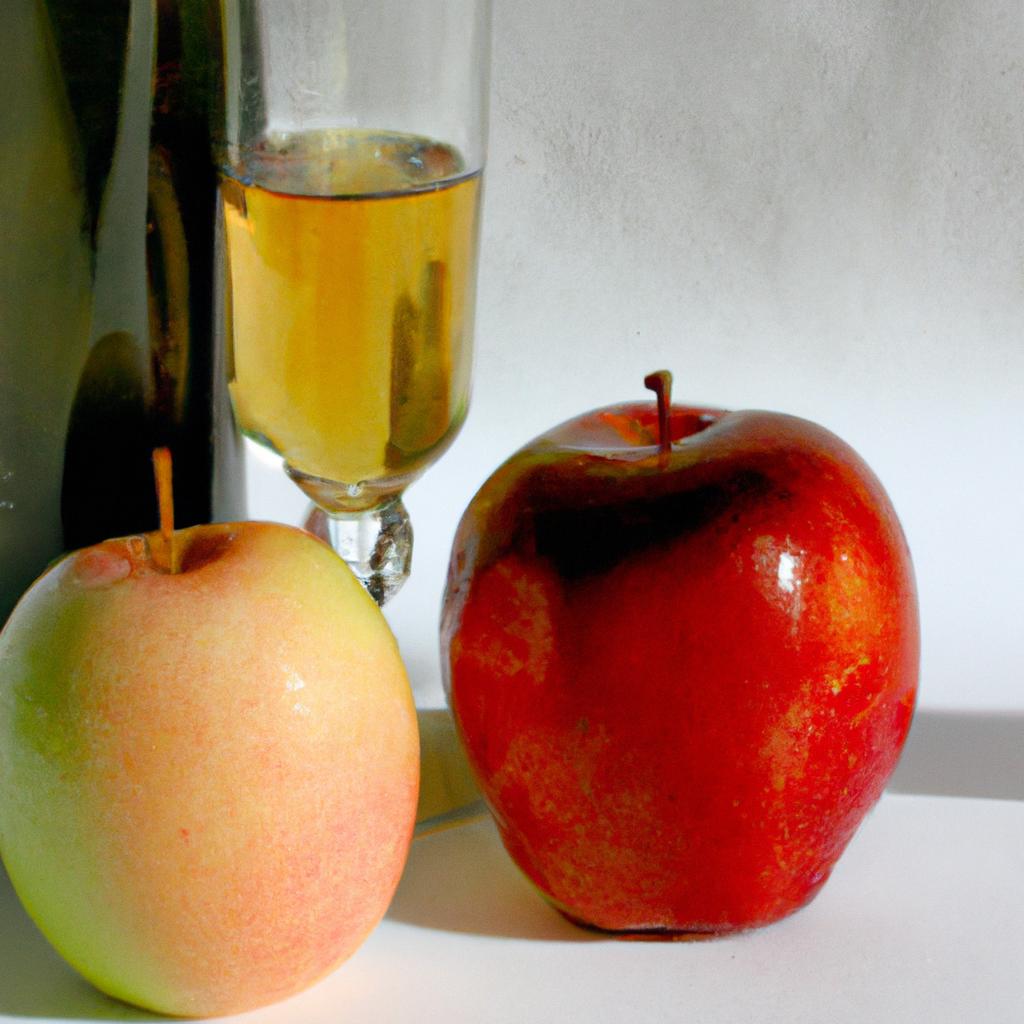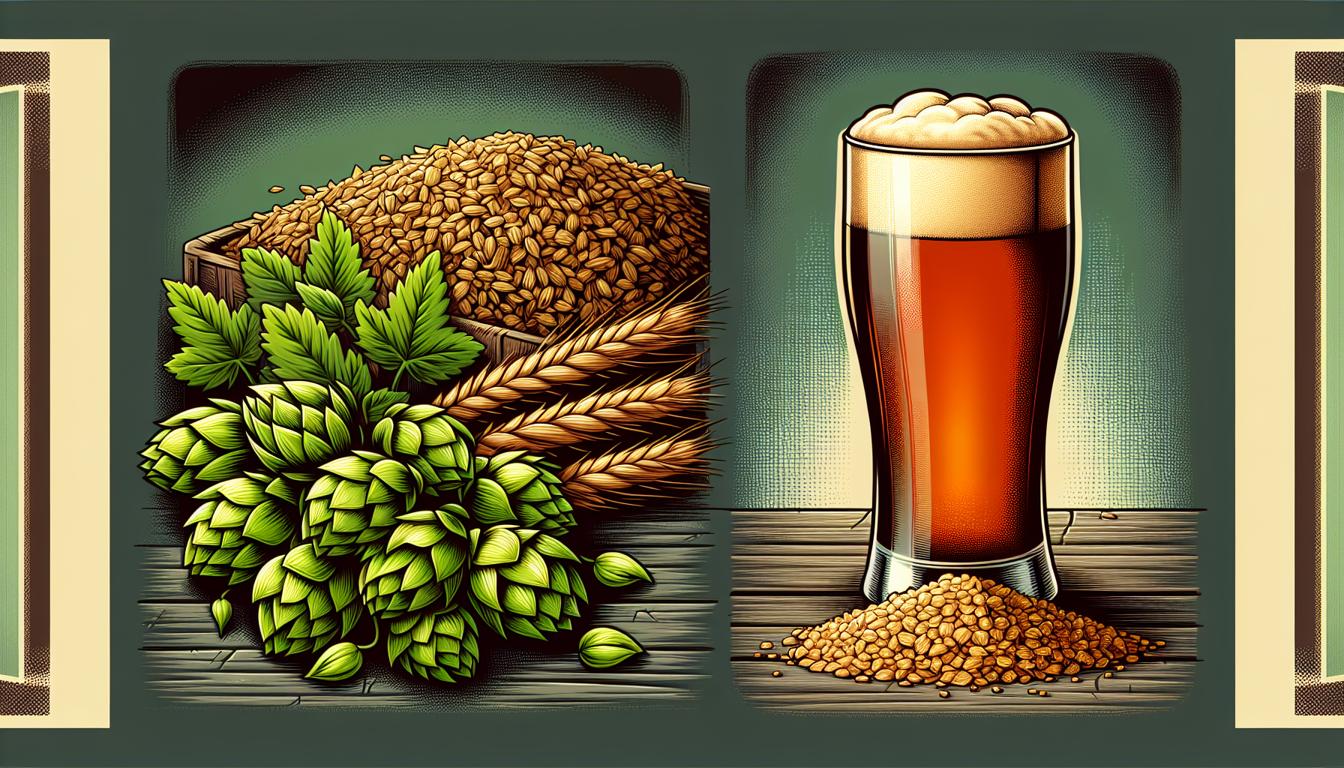As a brewer and avid amateur cook, I’ve always been fascinated by the different ways that beverages can be used to enhance the flavor and aroma of various dishes.
One of the most popular questions that I’ve come across in my culinary journey is the age-old debate: Why use hard apple cider instead of apple juice for cooking?
Both beverages are derived from apples, but they differ significantly in terms of their flavor profiles, alcohol content, and overall versatility in the kitchen.
Both apple juice and hard cider can be used in cooking, they each offer distinct flavors and benefits to various dishes.
Ultimately, it depends on the specific recipe and desired outcome to determine which one is the best choice for your culinary creation.
In this blog post, we’ll take a closer look at the differences between apple juice and hard cider, their unique applications in cooking, and some tips and tricks to make the most of these versatile ingredients.
1. Understanding the Basics: Apple Juice vs Hard Cider
Before diving into the culinary applications of apple juice and hard cider, it’s important to understand the fundamental differences between these two beverages.
- Apple juice is a non-alcoholic beverage made from the liquid extracted from fresh apples. It is typically sweet, with a mild, fruity flavor. Apple juice can be consumed as a standalone beverage or used as an ingredient in various recipes.
- Hard cider, on the other hand, is an alcoholic beverage made from the fermented juice of apples. It contains alcohol, typically ranging from 4-6% ABV (alcohol by volume). The flavor of hard cider can vary from sweet to dry, depending on the type of apples used and the fermentation process.

2. Apple Juice in Cooking: Sweetness and Versatility
Apple juice is a popular ingredient in cooking for several reasons:
1. The natural sweetness of apple juice can be used to balance out the flavors in a dish, particularly in recipes that call for tart or acidic ingredients.
2. Apple juice can be used as a base for sauces, marinades, and glazes, adding a subtle fruitiness to the dish without overpowering the other flavors.
3. It can also be used as a liquid for braising or poaching, providing moisture and a touch of sweetness to the cooking process.
4. Apple juice can also be reduced down into a syrup or concentrate, which can be used as a sweetener or flavor enhancer in various recipes.
3. Hard Cider in Cooking: Depth of Flavor and Aroma
Hard cider offers a unique set of benefits when used in cooking:
1. The alcohol content in hard cider can help to tenderize proteins, making it an excellent choice for marinating meats, particularly tough cuts like pork shoulder or beef brisket.
2. The acidity and carbonation of hard cider can also help to break down fibers in vegetables, making them more tender and flavorful when cooked.
3. When used in sauces, hard cider can add depth and complexity to the flavor profile, particularly in dishes that call for a balance of sweet and savory elements.
4. The fermentation process used to make hard cider produces a range of aromatic compounds that can enhance the overall aroma of a dish, particularly when used in recipes that feature aromatic herbs and spices.
4. Cooking with Apple Juice: Tips and Techniques
If you’re planning to use apple juice in your cooking, consider the following tips and techniques to make the most of this versatile ingredient:
1. Choose a high-quality, pure apple juice with no added sugars or preservatives. This will ensure that you get the best flavor and nutritional benefits from the juice.
2. When using apple juice as a cooking liquid, be aware that it will reduce and concentrate as it cooks, so you may need to adjust the amount of sweeteners or other ingredients in your recipe accordingly.
3. Try using apple juice as a substitute for water or broth in recipes that call for a liquid base. This can add an interesting twist to traditional recipes, such as using apple juice in place of water when cooking rice or grains.
4. For a fun and flavorful twist, try using apple juice in place of wine or beer in recipes that call for a splash of alcohol. This can add a subtle fruitiness to the dish without adding any alcohol content.
5. Cooking with Hard Cider: Tips and Techniques
When using hard cider in your cooking, keep the following tips and techniques in mind:
1. Choose a cider that complements the flavors of your dish. For example, a sweeter cider might work well in a dessert recipe, while a dry cider could be more suitable for savory dishes.
2. Be aware that the alcohol content in hard cider will cook off during the cooking process, leaving behind only the unique flavors and aromas of the cider.
3. When using hard cider in marinades or sauces, consider reducing it down first to concentrate the flavors and remove some of the alcohol content. This will result in a more intense, cider-forward taste in your final dish.
4. Experiment with using hard cider in place of other acidic ingredients, such as vinegar or lemon juice, in recipes that call for a splash of acidity. This can add an interesting twist to traditional recipes, such as using hard cider in place of vinegar in a salad dressing or marinade.
6. Pairing Apple Juice and Hard Cider with Other Flavors
Both apple juice and hard cider pair well with a range of other flavors, making them versatile additions to your cooking repertoire. Consider the following flavor pairings when experimenting with these ingredients:
1. Apple juice and hard cider both pair well with warm, earthy spices like cinnamon, nutmeg, and cloves, making them excellent choices for fall and winter dishes.
2. The natural sweetness of apple juice can be used to balance out the flavors in recipes that call for tart or acidic ingredients, such as cranberries, vinegar, or lemon juice.
3. Hard cider pairs particularly well with savory ingredients like onions, garlic, and herbs, making it an excellent choice for sauces, marinades, and braises.
4. Both apple juice and hard cider can be used to enhance the flavors of other fruit-based ingredients, such as pears, peaches, or plums, in both sweet and savory dishes.
7. Health Benefits of Cooking with Apple Juice and Hard Cider
In addition to their culinary applications, both apple juice and hard cider offer a range of health benefits when used in cooking:
1. Apple juice is a good source of vitamins and minerals, particularly vitamin C and potassium.
2. The antioxidants found in apple juice can help to protect your body against the damaging effects of free radicals, which can contribute to chronic diseases like cancer and heart disease.
3. The polyphenols found in hard cider have been shown to have anti-inflammatory and antioxidant properties, which can help to protect against chronic diseases and support overall health.
4. The fermentation process used to make hard cider produces a range of beneficial probiotics, which can help to support digestive health and boost your immune system.
8. Apple Juice and Hard Cider in Baking
Both apple juice and hard cider can be used in a variety of baking applications, adding moisture, flavor, and natural sweetness to your favorite baked goods. Consider the following tips and techniques when using these ingredients in your baking:
1. Replace some or all of the liquid in your recipe with apple juice or hard cider for an interesting twist on traditional baked goods, such as using apple juice in place of milk in a muffin or pancake recipe.
2. Use apple juice or hard cider as a natural sweetener in place of sugar or other sweeteners in recipes that call for a liquid sweetener.
3. Experiment with using apple juice or hard cider in place of other acidic ingredients, such as buttermilk or yogurt, in recipes that call for a tangy, acidic component.
4. Use apple juice or hard cider to create flavorful glazes or icings for cakes, cookies, and other baked goods, either by reducing the liquid down into a syrup or by combining it with powdered sugar or other ingredients.
9. Creative Recipe Ideas Using Apple Juice and Hard Cider
Ready to get cooking with apple juice and hard cider? Here are some creative recipe ideas to get you started:
1. Apple Cider Braised Pork Shoulder
2. Hard Cider Glazed Carrots
3. Apple Juice Poached Pears with Cinnamon and Honey
4. Hard Cider and Onion Soup
5. Apple Juice Marinated Chicken with Rosemary and Garlic
6. Hard Cider Baked Beans
7. Apple Juice Infused Rice Pudding with Raisins and Cinnamon
8. Hard Cider and Apple Tarte Tatin
9. Apple Juice and Cranberry Sauce
10. Hard Cider and Cheddar Fondue
Conclusion
In conclusion, both apple juice and hard cider offer unique flavors and benefits when used in cooking, making them versatile additions to your culinary toolbox. Whether you’re looking for a sweet, fruity flavor, or a deeper, more complex taste, these ingredients can enhance a wide range of dishes and recipes. Ultimately, it depends on the specific recipe and desired outcome to determine which one is the best choice for your culinary creation. Here are 10 quick facts about apple juice and hard cider for cooking:
1. Apple juice is non-alcoholic and has a sweet, fruity flavor.
2. Hard cider is an alcoholic beverage with a more complex flavor profile.
3. Apple juice can be used as a sweetener or flavor enhancer in various recipes.
4. Hard cider can add depth and complexity to sauces and marinades.
5. Apple juice and hard cider can be used in both sweet and savory dishes.
6. Both ingredients pair well with a range of other flavors, particularly warm, earthy spices.
7. Apple juice and hard cider offer a range of health benefits when used in cooking.
8. Both ingredients can be used in a variety of baking applications.
9. Experiment with using apple juice and hard cider as substitutes for other liquids or acidic ingredients in your recipes.
10. Get creative and try using apple juice and hard cider in a range of different dishes, from braises and sauces to baked goods and desserts.
FAQs
What is the best juice for smoking meat?
The best juice for smoking meat depends on personal preference and the type of meat being smoked. However, apple juice, pineapple juice, and orange juice are popular choices as they add sweetness and acidity to the meat.
Can I use hard cider instead of white wine?
Yes, hard cider can be used as a substitute for white wine in recipes. However, keep in mind that cider has a sweeter and fruitier taste than white wine, which may affect the overall flavor of the dish. It is also important to note that the alcohol content in cider is higher than that in white wine, so adjust the amount accordingly.
What is a good substitute for apple juice in ham?
A good substitute for apple juice in ham can be pineapple juice or orange juice as they have a similar level of acidity and sweetness.
What can you use instead of apple juice for smoking meat?
You can use other fruit juices such as cherry, grape, or pineapple juice or even beer or wine as a substitute for apple juice when smoking meat.
Can you use hard cider in cooking?
Yes, hard cider can be used in cooking to add flavor and depth to dishes such as stews, sauces, marinades, and desserts. It can also be used as a substitute for beer or wine in recipes.
Is apple cider can be used for cooking?
Yes, apple cider can be used for cooking. It can be used as a marinade or as a flavorful ingredient in dishes such as stews, sauces, and baked goods.




-recipe.jpg)